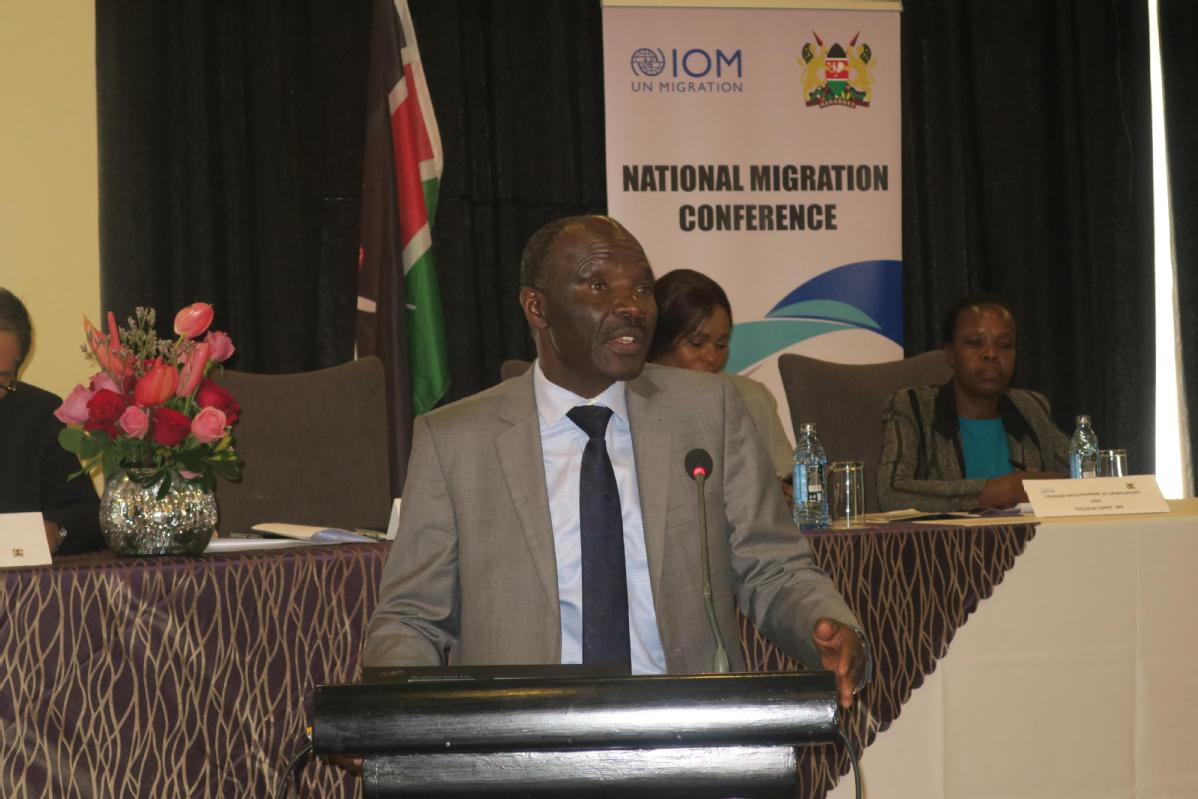African countries were urged on Thursday to develop policies that will speed up the integration of migrants and refugees into economic development. The International Organization of Migration in Kenya said they hold great potential for positive contribution by proving skilled and unskilled labor to drive industrialization.
Ferdinand Paredes, the chief of Mission, said most of the migrants in Africa are seeking economic opportunities, and hence are skilled.
He noted that the majority of these migrants are moving to another African country rather than travelling to North America or Europe, as commonly perceived. Their primary motive is to seek work or higher pay in another country, he said.
"It therefore falls upon governments to ensure that they are handled in a safe, orderly and humane way. This is the spirit of the Global Compact of Migration."
Paredes spoke during a two-day conference held in Nairobi that brought together policy makers and development partners.
Stakeholders were looking at strategies for developing programs and policies that would guide the implementation of the Global Compact for Safe, Orderly and Regular Migration.
Also known as the Marrakech Compact on Migration, it was endorsed by the UN General Assembly late last year. The pact sets an action plan of facilitating safe migration and prevent suffering and chaos. It is a non-binding agreement that underpins better management of migration at local, national, regional and global levels.

Kenya's principal secretary at the state Department of Immigration and Citizen Services says migration is not a threat to the sovereignty of any state. (Photo: Chinadaily)
Latest UN estimations suggest there are at least 250 million migrants around the world.
"Migration is a natural phenomenon now and we have to deal with it, especially border management, to safeguard the rights of migrants and refugees," said Paredes.
He commended Kenya's efforts in forming a multi-sectorial department to bring together relevant government divisions and offer a one-stop office for better management of people crossing borders for various reasons.
Paredes suggested that government focus, especially when formulating policies, should heavily consider the human rights of these people, especially the refugees.
Gordon Kihalangwa, the permanent secretary at the state department of immigration and citizens in Kenya, said the general population should first understand migration as well as the global pact. This would prevent stigmatization and vulnerabilities to violence.
Migration is not a threat to any sovereign state, he said. In Europe, population decline has opened up employment opportunities that are attractive to skilled workers from developing nations.
"But the visa regime is restrictive, forcing many to look for alternative ways that puts them in danger of human trafficking. It therefore falls upon governments to ensure that their citizens, who are migrating to another country, are protected," he said.
A recent report by Afrobarometer showed that only 27 percent and 22 percent of Africans wanted to migrate to Europe and North America respectively. This is opposed to 29 percent who intend to move to another African country.
The senior government official commended the Philippines' efficient management of its diaspora, who contributed a total of $31.29 billion to its economy in 2017. This dwarfed Kenya's $2.8 billion in the same year, as well as $2.42 sent back to the rest of Eastern Africa - comprising Uganda, Tanzania, Rwanda, Burundi, South Sudan and Ethiopia.
Kihalangwa sadly noted criticism against the government over the high influx of refugees in Kenya, saying that the country is a signatory of the refugee convention and has an obligation to host refugees. As it stands, Kenya currently hosts about 450,000 refugees in the country.
Corruption was also cited as the biggest impediment towards successful management of refugees. He therefore noted that all government departments, together with the international community, have a role in accelerating the implementation of the global pact on migration.


